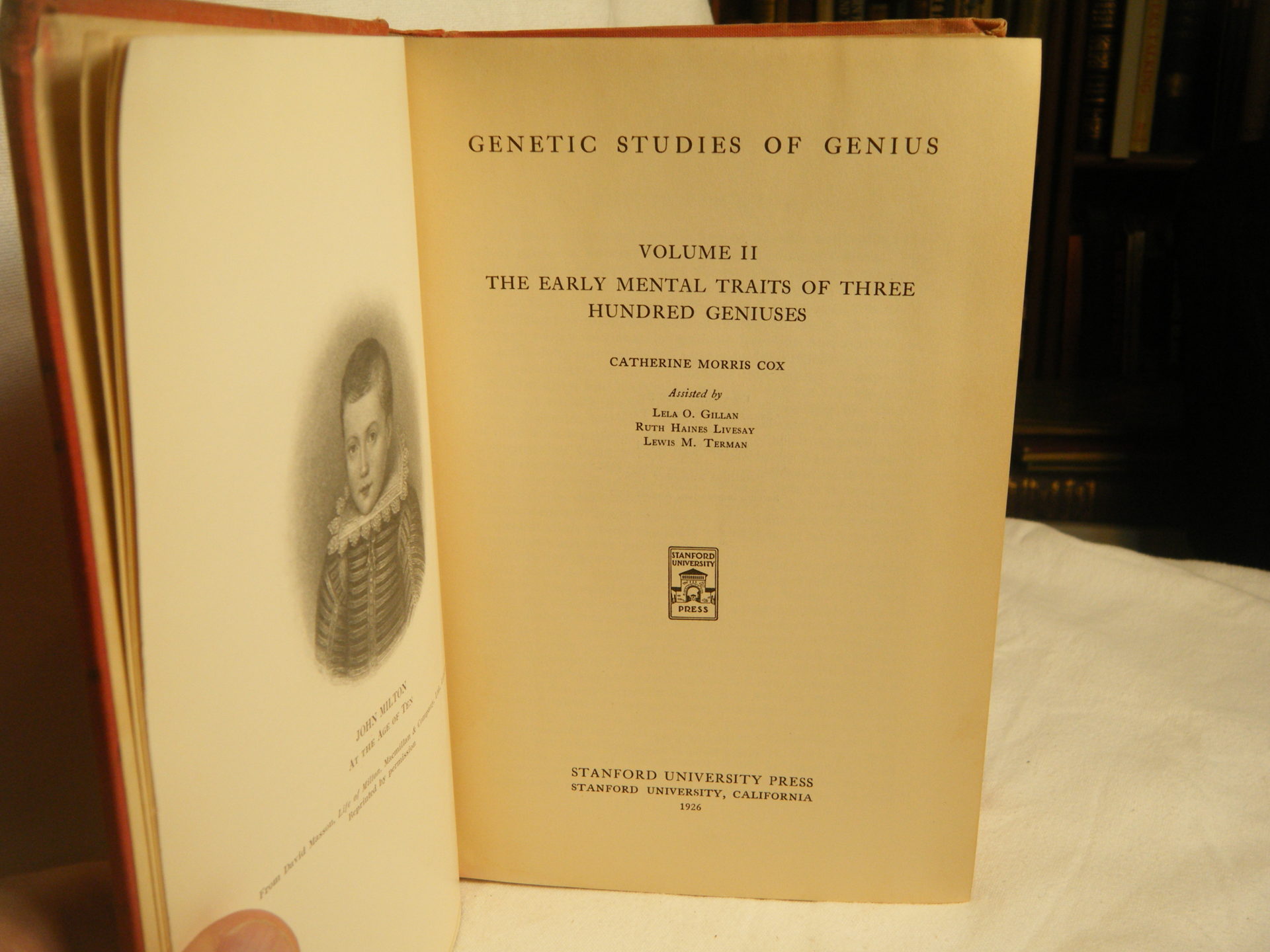The Genetic Studies of Genius study, begun by Lewis Terman in 1921, is the longest-running continuous psychological investigation. Recruitment through 1928 yielded a final sample of 1,528 Californian children of high intelligence. The participants have been studied and surveyed about their personalities, education, careers, successes, marriages, families, and well-being every 5–10 years throughout life. The results reveal that, even within an intelligent sample, psychological and social characteristics interact with the environment to set individuals on lifelong pathways toward health and thriving, or toward illness and stagnation throughout the lifespan.
Terman had previously performed studies in intelligence, including his doctoral dissertation. In 1916, he adapted Alfred Binet’s intelligence test for the United States and expanded its range. Terman had already found some bright children through his earlier research, and some of these were part of the sample in the Genetic Studies of Genius. Terman initially hoped to find the 1,000 most intelligent children, but eventually found 1,444. However, Terman gradually added subjects to the study through 1928 until there were 1,528 (856 males and 672 females).
Terman’s goal was to disprove the then-current belief that gifted children were sickly, socially inept, and not well-rounded. Therefore, the first volume of the study reported data on the children’s family, educational progress, special abilities, interests, play, and personality. He also examined the children’s racial and ethnic heritage. Terman was a proponent of eugenics, although not as radical as many of his contemporary Social Darwinists, and believed that intelligence testing could be used as a positive tool to shape society.
As time has passed, the sample has dwindled. As of 2003, there were over 200 members of the sample still alive. The study is to continue until the final member of the sample either withdraws or dies. In the 21st century, researchers continue to publish articles based on the data collected in the Genetic Studies of Genius. For example, one article found that men who skipped a grade in childhood had higher incomes throughout adulthood.
According to en.wikipedia.org. Source of photo: internet








